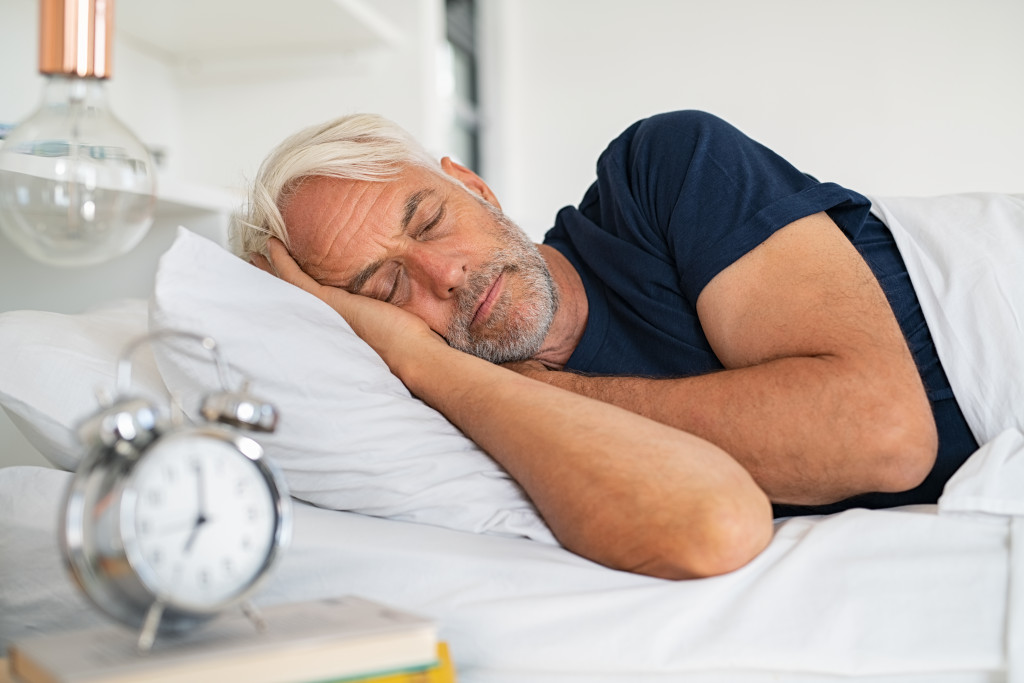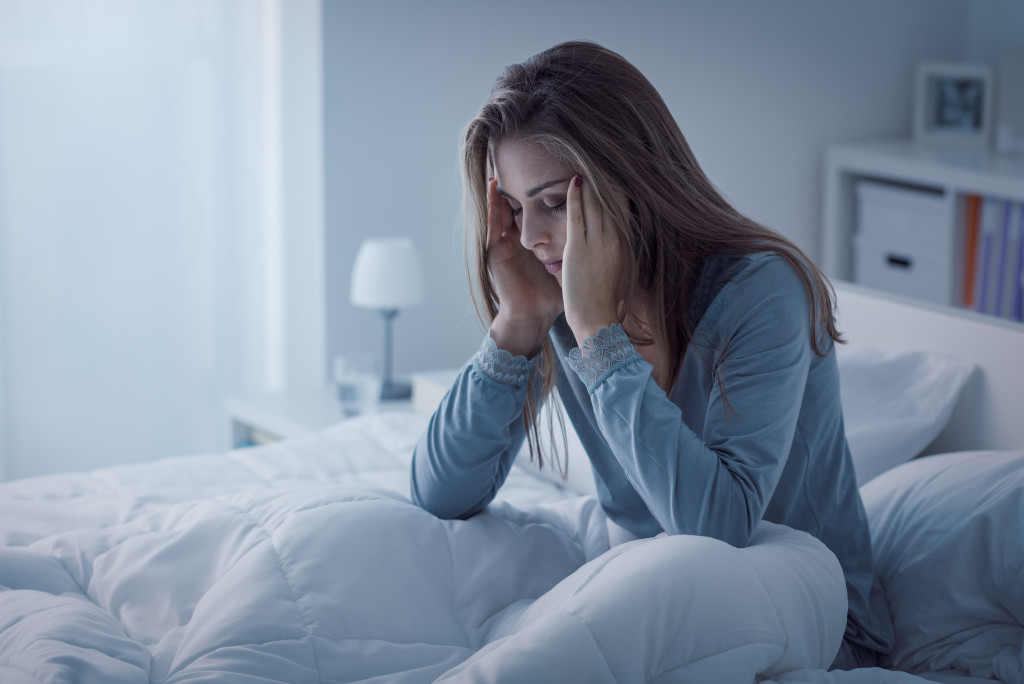- Adjust your sleep schedules and exposure to natural light ahead of your trip to minimize jet lag effects.
- Make your sleep environment comfortable during travel with accessories like earplugs, eye masks, and travel pillows.
- If applicable, use relaxation techniques and manage sleep apnea for better sleep in unfamiliar surroundings.
- Stay hydrated and limit alcohol consumption during your journey; establish a familiar bedtime routine.
- Get ample rest to maximize your travel experience and avoid anxiety and depression.
Traveling is one of the most rewarding experiences. But many people agree it can be stressful, especially when getting enough sleep. Jet lag, time zone changes, and unfamiliar sleeping arrangements are just a few factors that can disrupt your sleep patterns while on the road.
However, there are things you can do to prepare your body for a good night’s sleep so you don’t wake up feeling groggy and unproductive the next day. This blog will share expert tips to help combat travel-induced sleeplessness and enjoy restful travels.

Adjust to the Time Zone Before Departure
One of the best ways to combat jet lag and time zone changes is to adjust your sleep schedules before you depart for your trip. Try to shift your bedtimes and wake-up times to the destination’s clock to help your body adjust to the new time zone more easily. Adjust your schedule gradually in small increments rather than all at once to help your body adapt more easily to the new time zone.
Natural Light
Additionally, exposure to natural light can help you adjust to the new rhythm of your destination even faster. If you struggle, try taking a short nap during the day and reducing your caffeine intake in the evening to help ease into a better sleep routine. Doing this will help align your body clock and get you into a healthy sleep routine much more quickly, so you don’t feel the effects of jet lag and sleeplessness as severely.
Be Mindful of Your Sleep Environment
When you travel, the sleeping arrangements might differ from what you’re used to. But that doesn’t mean you should sacrifice your sleep quality. Pack earplugs, an eye mask, and a travel pillow to help make sleeping more comfortable when traveling by airplane, train, or car.
Dark and Quiet Room
If you’re staying in a hotel room, ensure the room is quiet, dark, and has comfortable bedding. If the environment isn’t ideal, request a different room or ask if they provide items to make your sleep more comfortable.
Incorporate Relaxation Techniques Before Bed
Relaxation techniques like deep breathing, meditation, or progressive muscle relaxation can help you unwind and sleep better when traveling. Practicing these techniques before bed can help you easily fall asleep, even when your surroundings are unfamiliar. If you’re not sure where to start, plenty of apps can guide you through relaxation techniques.
Sleep Apnea
If you’re someone who suffers from sleep apnea, pack your CPAP machine if you’ll need it on your trip. While the device may take up more room than other items in your bag, it can make a huge difference in helping you get restful and uninterrupted sleep during travel. You should also consider consulting a reliable sleep dentist. The dental professional can advise better managing your sleep apnea while away from home so you don’t have to sacrifice a good night’s rest.
Stay Hydrated, But Limit Your Alcohol Consumption
Drinking alcohol while flying can make you feel relaxed but can also inhibit sleep and cause dehydration. As tempting as it may be to have a glass of wine or two — especially if it’s offered for free on long-haul flights — it’s best to avoid it altogether or limit your consumption. Instead, drink plenty of water throughout your journey to stay hydrated and improve the quality of your sleep.
Water Bottle
Bring your large water bottle and fill it up before boarding the plane. Be sure to bring a smaller empty water bottle with you, too, so you can refill it at airports or on the plane if needed. Additionally, make sure to eat healthy foods during the flight that are high in electrolytes — like bananas — as these will help keep your energy levels up during the journey.

Establish a Familiar Bedtime Routine
Even though you’re traveling, it is helpful to establish a familiar bedtime routine to signal to your body that it’s time for sleep. Whether reading a book, taking a warm bath, or indulging in a cup of chamomile tea, establishing a relaxing bedtime routine that you can stick to throughout your travels promotes sleepiness and helps you get ample rest.
Travel-induced sleeplessness can be a real problem whether traveling for business or pleasure. Not only can sleep deprivation affect your productivity and focus, but it can also lead to other issues like anxiety and depression. By incorporating the expert tips enumerated in this blog post, you can combat travel-induced sleeplessness and ensure you make the most of your travels.

